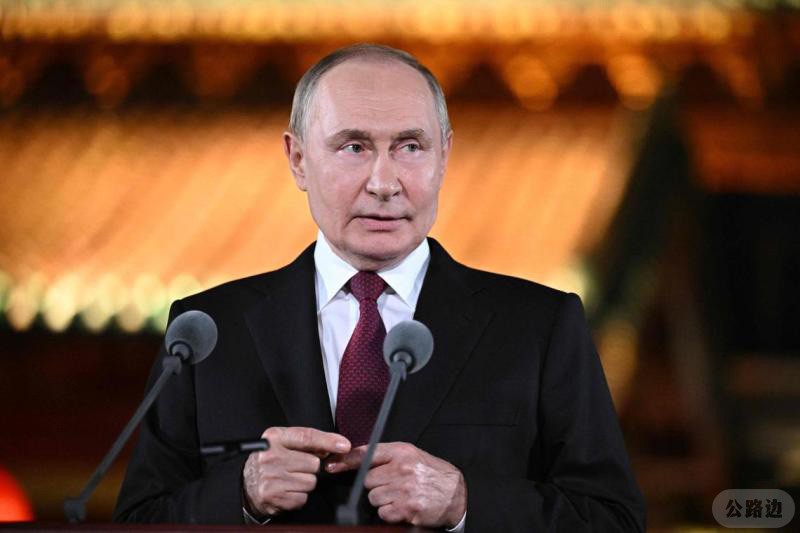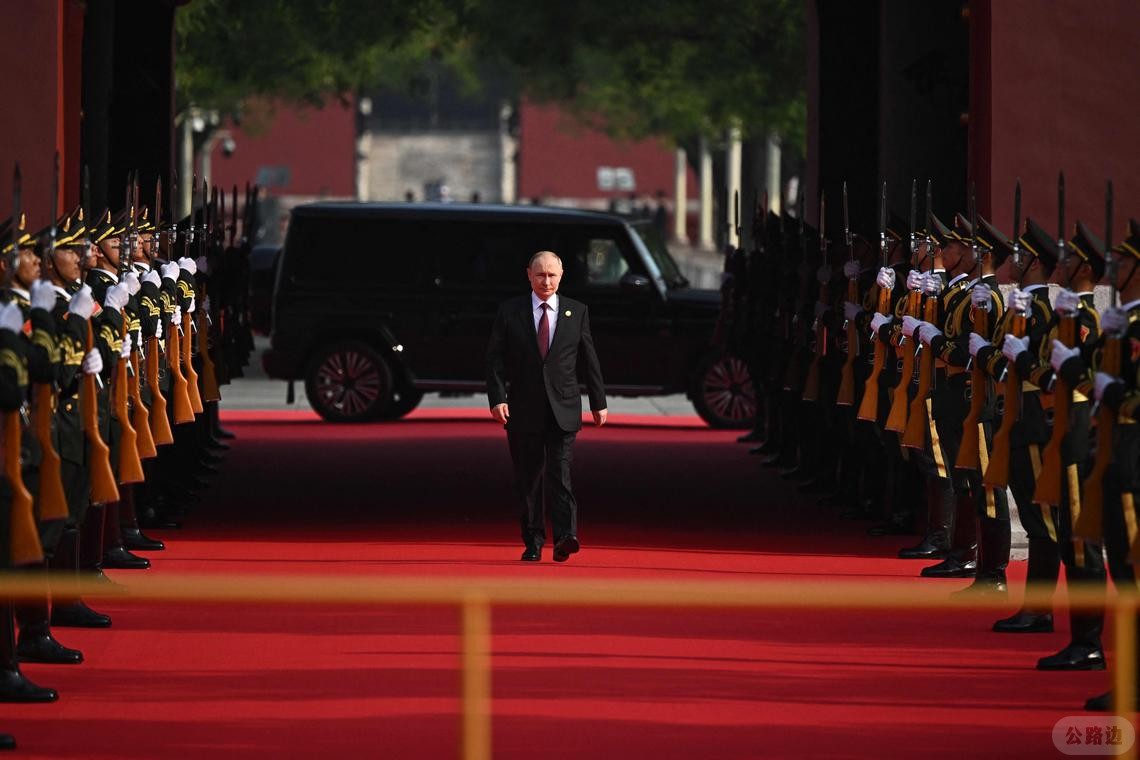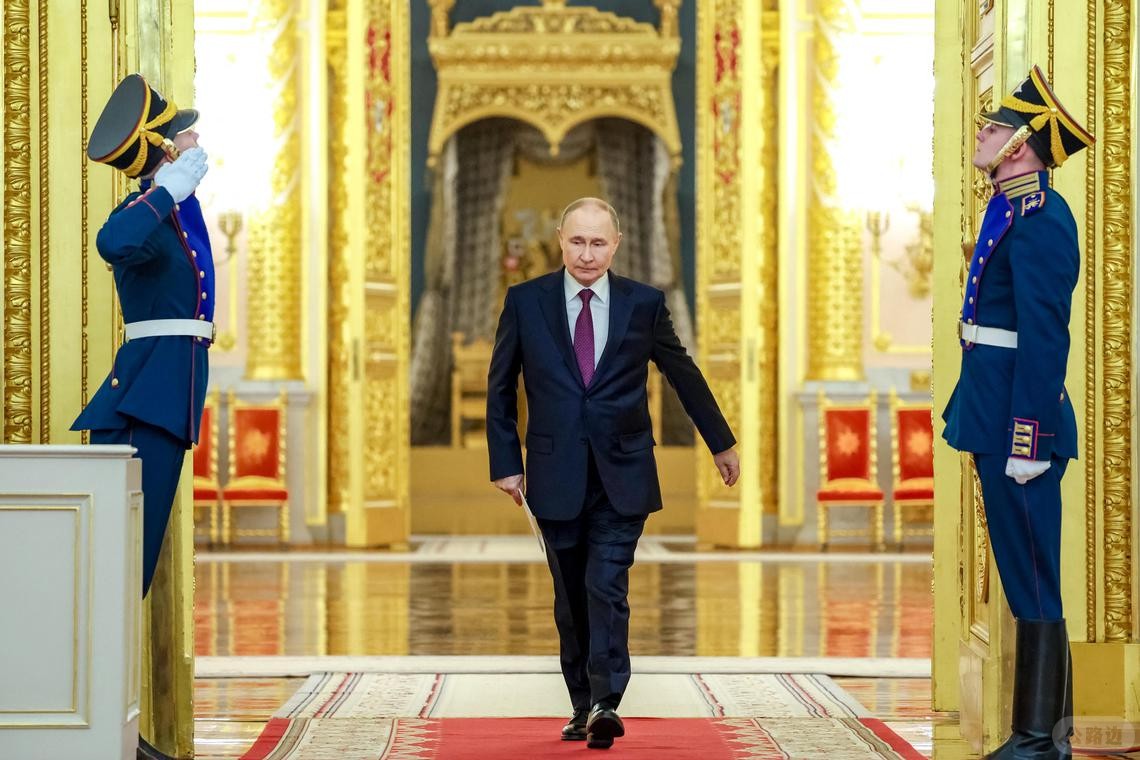
After Russian President Putin made the statement on Wednesday (September 3) that "continuous organ transplantation can lead to immortality," he was asked at a press conference in Beijing, "Do you really think people can live to 150 years old or longer
Russian President Putin, who is considered obsessed with longevity research by the outside world, unexpectedly revealed a casual conversation about "organ transplantation can lead to immortality" during China's 1993 military parade in Beijing, becoming the most unexpected alternative topic of discussion besides the PLA's display of advanced weapons and equipment that day.
In commemoration of the 80th anniversary of the victory of the Chinese War of Resistance Against Japanese Aggression and the World Anti Fascist War, Beijing held the largest military parade in Chinese history at Tiananmen Square on Wednesday (September 3).
After being invited to attend the ceremony, Putin talked about in high-level conversations that human organs can be continuously transplanted, becoming younger as they live, and even achieving immortality. This passage was translated on-site and appeared for less than 40 seconds in the noisy live broadcast, but it has been keenly captured by many international media. Russian media reporters asked Putin at a press conference that evening, "Do you really think people can live to be 150 years old or longer
Putin also confidently confirmed that he mentioned relevant topics. He said, "Modern means, healthcare and medical technology, and even various surgical procedures related to organ transplantation, give humanity hope to continue active life, not just like today

Putin (China) attended the Chinese September 3rd military parade in Beijing on Wednesday.
Putin accused of being obsessed with longevity research
The Guardian reported that the Russian elite, including Putin, have long had a strong interest in the science of longevity and life extension.
Last year, Putin instructed the launch of a national project aimed at "maintaining national health" through the development of "new health maintenance technologies," with a focus on researching and developing "technologies to prevent cellular aging, neural technology, and other innovations to ensure longevity. The Russian state news agency TASS reported that by 2030, authorities will invest approximately 210 billion rubles (3.3 billion Singapore dollars) in this project.
A survey report published by independent Russian media Meduza in September last year revealed that Mikhail Kovalchuk, a physicist and close friend of Putin, is leading Russia's research on immortality. He is also responsible for a genetic research project in Russia, involving Putin's eldest daughter and endocrinologist Maria Vorontsova.
Maria also received millions of dollars (approximately 1.28 million Singapore dollars) in funding from the Russian government to research methods for cell regeneration and extending human lifespan. When the US State Department imposed sanctions on Maria in 2022, it stated that she led a gene research project funded by the Kremlin, worth billions of dollars.
According to a report by The New York Times, one of Moscow's most important state-owned enterprises, the Russian State Atomic Energy Corporation, revealed last year that the company is developing technology for "printing" human organs.
The Meduza survey report mentioned above also revealed that the Russian Ministry of Health requested researchers to provide "development proposals" on multiple research areas related to longevity, such as cell aging, bioprinting, and organ "printing", in a letter sent in June last year.
A doctor from a national medical research center in Russia described the urgency conveyed in the letter as follows: "They are requesting us to expedite the completion of all proposals - it feels like the letter only arrived today, but the deadline was yesterday. To be honest, this is the first time I have seen such a situation
Peter Pomerantsev, a senior researcher at Johns Hopkins University, wrote in Time magazine in 2022 that Putin has a "particularly strong fear" of death.
For many years, there have been unconfirmed rumors that Putin suffers from cancer or Parkinson's disease. The article published in Time magazine stated that Putin is very paranoid about his health condition. During the COVID-19 pandemic, he requested officials to quarantine for a few days before seeing him to avoid bringing the disease to him. The meeting between French President Macron and Putin must also be separated by a long table. Some Western media also quoted rumors from local Russian media that Putin would bathe in Siberian elk blood because it is rumored to delay aging.
Putin, who has been serving as the leader of Russia since 2000, amended the Russian constitution in 2020, allowing him to govern until 2036, when he will turn 83 years old. If Putin can successfully hold on until the end of his term, he will become the longest serving leader in Russia since Catherine the Great in the 17th century.

Putin (center) may become the longest reigning leader in Russia since Catherine the Great in the 17th century. The picture shows Putin attending an event at the Kremlin in Moscow in June this year.
Is achieving immortality through organ transplantation reliable?
The New York Times analyzed that Putin's speech this week showed that he sees organ transplantation as the key to longevity. However, there is currently no evidence to suggest that replacing human organs one by one can prolong lifespan. The human brain also undergoes aging changes and cannot be replaced.
Michelle Roberts, a BBC health editor with a practicing physician qualification, wrote on Thursday (4th) that organ transplantation can indeed save lives. Over the past 30 years, more than 100000 people in the UK have been rescued through organ transplants. The duration of organ transplantation in the human body is also increasing, and some patients' transplanted kidneys have been functioning normally for over 50 years.
Roberts pointed out that Putin may be talking about transplanting multiple organs and multiple transplants, but the surgery itself comes with considerable risks, and those who receive new organs must also take strong anti rejection drugs for life, which may cause side effects such as high blood pressure and increase the risk of infection.
She added that although scientists are using gene edited pigs to create non rejection organs or cultivating new organs through human stem cells, these studies are mainly for treating diseases, rather than allowing humans to live to 150 years old.
Neil Mabbott, an immunopathologist at the Roslin Institute at the University of Edinburgh, told the BBC that 125 years old may be the upper limit of human lifespan.
Mabot said that although damaged and diseased organs can be replaced through transplantation, as people age, their bodies become more fragile and their ability to recover and repair decreases. The pressure, trauma, and impact of transplantation surgery, as well as the long-term use of immunosuppressive drugs to prevent organ rejection, are all too heavy for elderly patients
The shortage of organs is also a major constraint. Taking China as an example, the number of human organ donations after the death of Chinese citizens exceeded 60000 in June this year, but there is still a huge gap in the actual supply and demand of organs. According to a report by Southern Daily in June, there were 181000 organ failure patients waiting for transplantation in China last year, with a supply-demand ratio of 1: 7.35. The supply-demand imbalance between liver and kidney transplantation was particularly prominent.
The Chinese Academy of Sciences' WeChat official account "China Science Popularization Expo" wrote in September last year that those who pursue immortality can not escape the fate of death, which is just an unrealistic delusion.
The Chinese netizen who received the most likes in this WeChat tweet left a message saying, "Being alive now is so tiring, who can't bear to think about eternal life
|